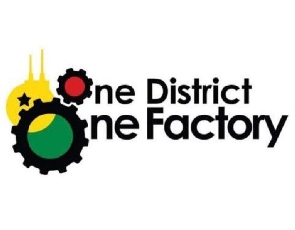Professor Alexander Bilson-Darku, Editor, Ghana Policy Journal, has called for the decentralisation of the One District One Once Factory (1D1F) policy to ensure the full participation of people at the rural level. Prof. Bilson-Darku, who is also a Visiting Scholar at the Institute for Economic Affairs (IEA), said the people in the district should be supported to come up with ideas for those industries based on the natural resources available in the area. Speaking to selected journalists at an IEA forum on Friday, October 7, 2022, on the topic: “Development Policy Perspective: Industrialisation In Ghana, ” he said the move would encourage ownership and ensure the sustainability of the industries. Prof. Bilson-Darku also called for the establishment of innovative financing models to assist the districts to be able to finance the establishment of the factories within their jurisdictions. “They don’t have collateral so they can’t get the loan; that shouldn’t be the end of the story. There must be innovative ways of providing credit to the people in the district for them to be able to come up with these industries,” he said. The 1D1F is the Government’s flagship industrialisation programme aimed at changing the nature of Ghana’s economy from one which is dependent on the import and export of raw materials to one which is focused on manufacturing, value addition and export of processed goods. As of September this year, a total of 296 companies had been captured under the Programme, out of which 125 were in operation and 144 were under construction, while 27 are in the pipeline, data from the Ministry of Trade and Industry indicated. Prof. Bilson-Darku said the country had over the years developed fantastic policies aimed at boosting industrialisation, adding that the implementation of those policies had not been the best. He said the country’s industrialization drive must be linked with agricultural productivity and must be anchored on its natural resources. He said the country must also develop a taste for what it produced and reduce the dependency on foreign goods to propel the growth of the local industry. “The country is blessed with fertile land, sunshine, and minerals and we are discovering new ones. So our ability to industrialise should be like 10 times other countries such as Mauritius,” Prof. Bilson-Darku said. He cited corruption and bad attitude towards work as the main issues undermining the country’s ability to industrialise, saying the inability of people to operate effectively in the system hampered the development of the sector. “If we are able to reduce corruption to the barest minimum and change our attitude, the economy will improve within three years than what we have done in the past 20 years,” Prof. Bilson-Darku said.













